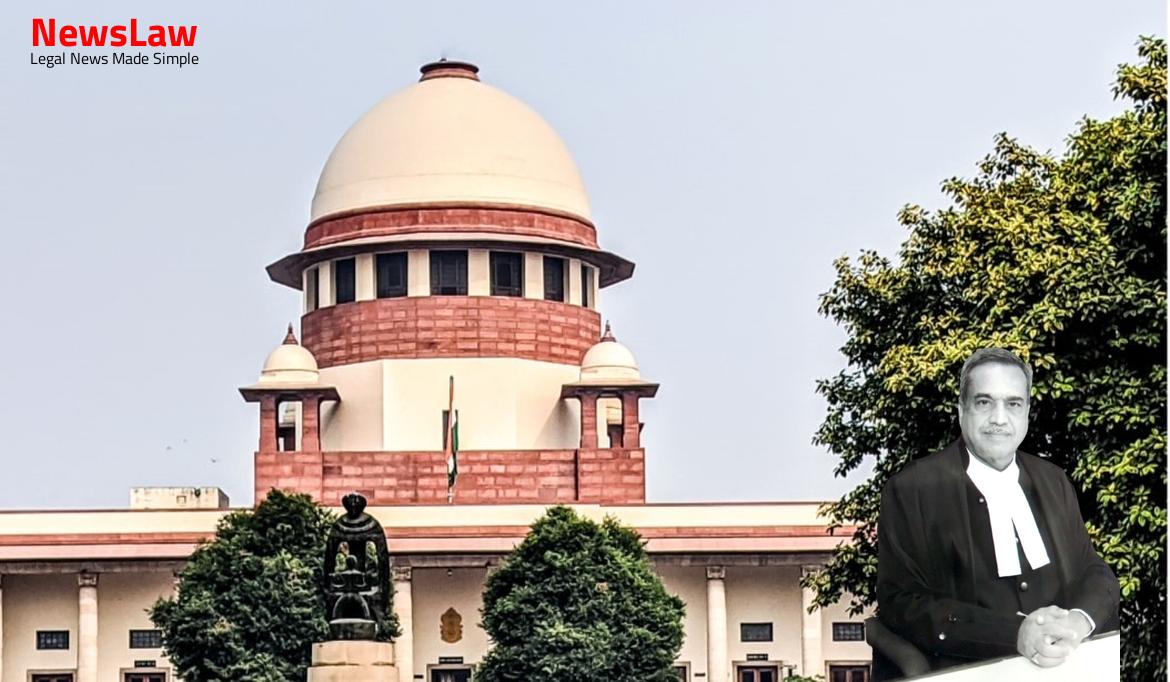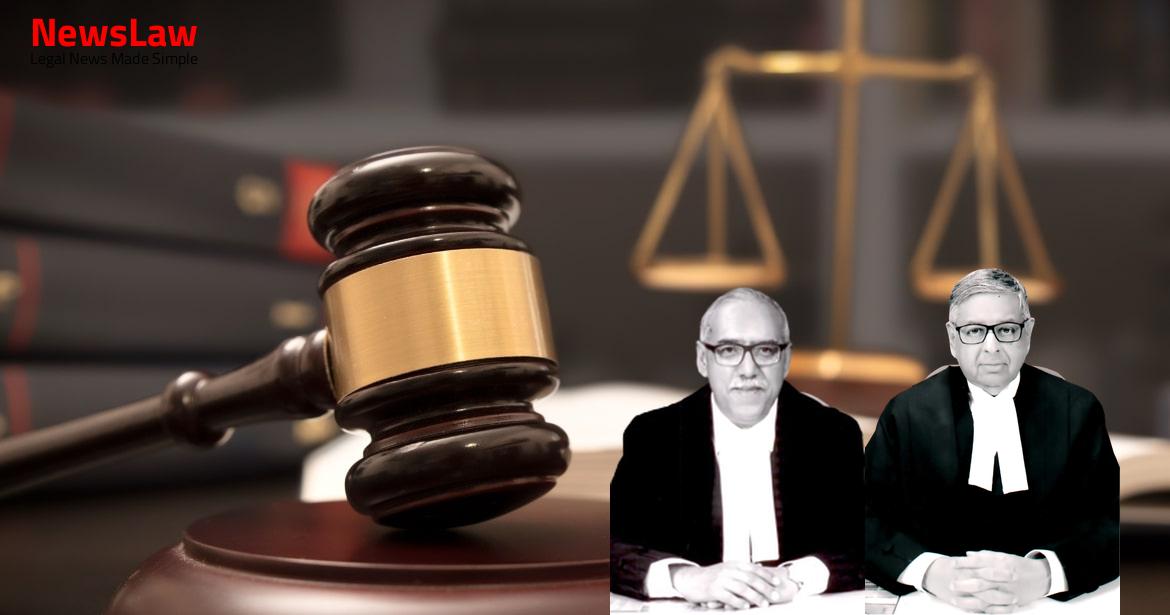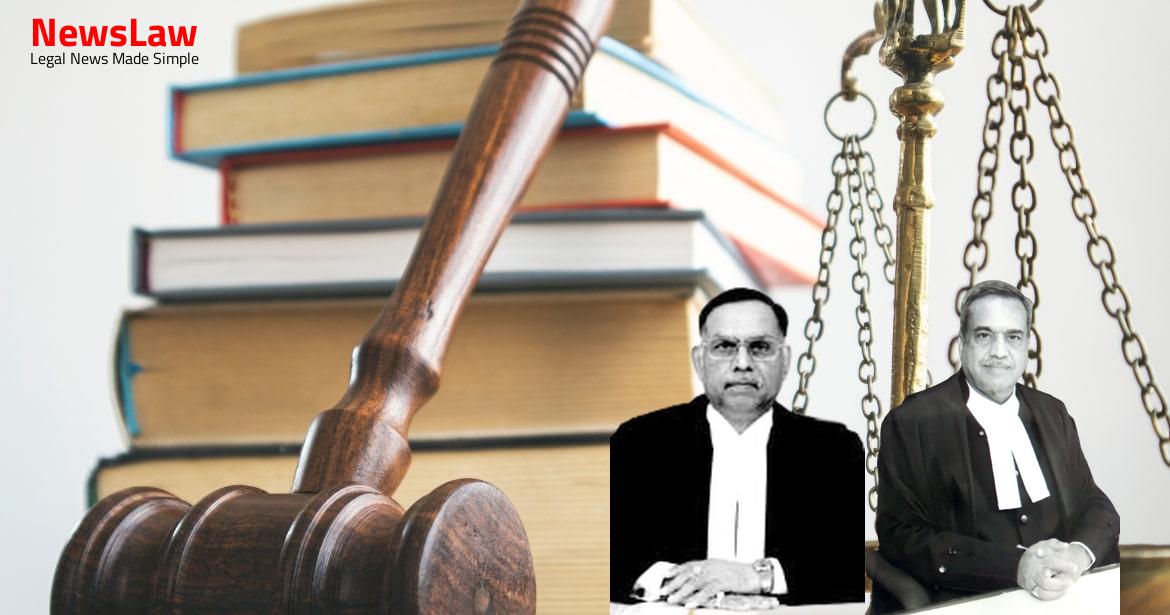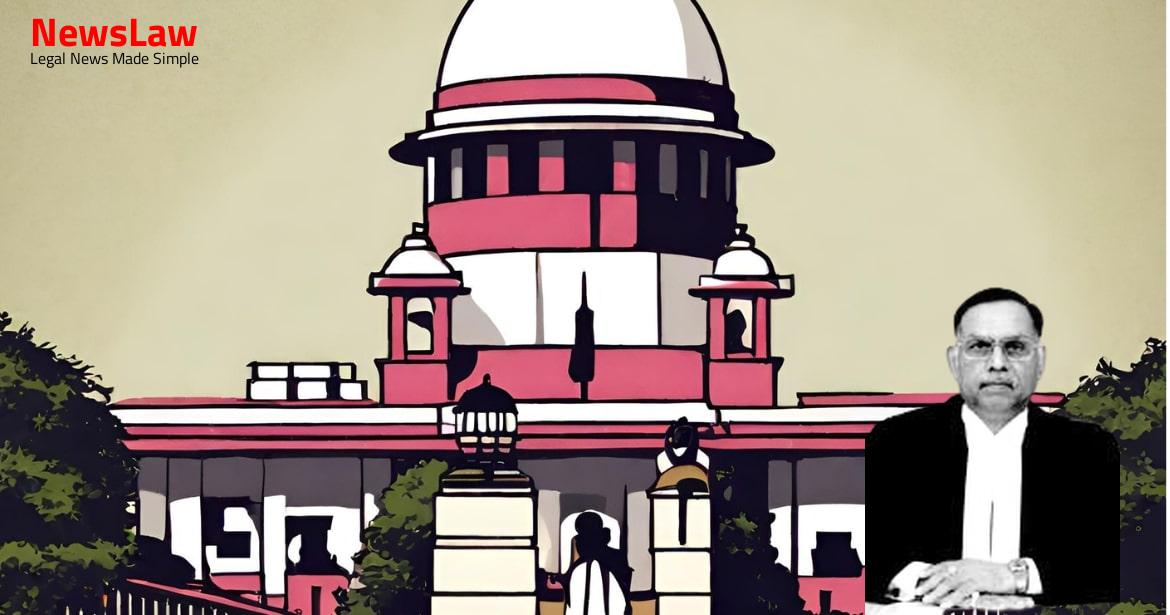The legal analysis conducted by the High Court in a recent anticipatory bail grant related to a fraud case has brought significant attention to the court’s interpretation of relevant legal provisions. This case has become a subject of debate among legal scholars and practitioners due to the court’s handling of the grant of anticipatory bail in the fraud matter. Let’s delve into the critical aspects of the court’s analysis and decision-making process.
Facts
- Accused prepared extracts, measurement sheets, and power of attorney documents to withdraw around Rs 68 lakhs for compensation to farmers.
- Allegations of fabricating documents for personal gain resulting in a fraud of Rs 87,76,755 by creating fake tenants.
- Involvement in a fraud of around Rs 5.28 crores by fabricating documents related to land occupants.
- Withdrawal of Rs. 1,84,30,400 using fake occupants and fabricated documents for personal gain.
- Applications for anticipatory bail were filed by the accused.
- Allegations of misappropriation of around Rs 1.57 crores deposited against fabricated names.
- Company filed complaints with police and court regarding alleged fraud by accused employees.
- Orders for investigation and FIR registration for offenses under various sections of the Indian Penal Code.
- Appeals against the grant of anticipatory bail by the High Court.
- Summary of the High Court’s decision on anticipatory bail applications under Section 438 of the CrPC.
- Complainant appealing the High Court’s decision.
- The High Court granted anticipatory bail to A2 and A3 on 13 February 2017 and 16 February 2017 respectively.
- Interim protection against arrest was granted to A1 on 24 January 2017.
- Anticipatory bail was granted to A1 and A4 on 18 December 2017.
- The High Court disposed of the complainant’s challenge to the grant of anticipatory bail by the Sessions Court to Diwakar Waman Patil and Hemant Haribhau Sonawane.
- Interim protection from arrest was granted to A4 on 16 February 2017.
Also Read: Electoral Malpractices in Mayor Election
Analysis
- High Court erred in not considering the seriousness of the allegations against the accused when granting anticipatory bail.
- Mistake made by High Court in questioning the validity of the Magistrate’s order under Section 156(3) which was not under challenge and had attained finality.
- High Court failed to acknowledge legal precedents clarifying the Magistrate’s authority to order investigation under Section 156(3) before taking cognizance of a complaint under Section 200.
- No challenge to the Magistrate’s order under Section 156(3) existed, thus High Court was not justified in doubting its validity.
- High Court’s waiver of conditions imposed in the interim order hampered the investigation process.
- The accused’s compliance with investigation calls and the passage of time were used to justify the grant of anticipatory bail, according to the accused’s counsel.
- The interpretation of the provisions of Section 202 by the High Court was disputed by the accused’s counsel, who argued that an enquiry by the police can only be ordered after recording the complainant’s statement on oath under Section 200.
- The High Court’s failure to consider previous judgments led to a formulation of a principle contrary to established precedent.
- Granting anticipatory bail without considering the nature and gravity of the alleged offense demonstrates the High Court’s oversight.
- The power of the Magistrate under Section 156(3) is not affected by the provisions of Section 202.
- Once the Magistrate takes cognizance of an offense, the procedure enunciated in Chapter XV must be followed.
- Investigation directed by the Magistrate under Section 202(1) is for the purpose of enabling the Magistrate to decide whether there are sufficient grounds to proceed further.
- Considerations governing the grant of anticipatory bail have been enunciated in Sushila Aggarwal v. State (NCT of Delhi).
- An appellate or superior court can set aside a bail order if relevant factors were not considered by the court granting bail.
- Serious allegations of fraudulent misappropriation were noted in Myakala Dharmarajam v. The State of Telangana.
- The legal position regarding the grant of anticipatory bail has been summarized in several decisions of the Court.
- Section 156 primarily deals with the powers of the police officer to investigate cognizable cases.
- When passing an order under Section 156(3), the Magistrate does not take cognizance.
Also Read: Balancing Power and Transparency: Electoral Bonds Struck Down, Disclosure Mandated
Case Title: M/S. SUPREME BHIWANDI WADA MANOR INFRASTRUCTURE PVT. LTD. Vs. THE STATE OF MAHARASHTRA (2021 INSC 360)
Case Number: Crl.A. No.-000680-000680 / 2021



